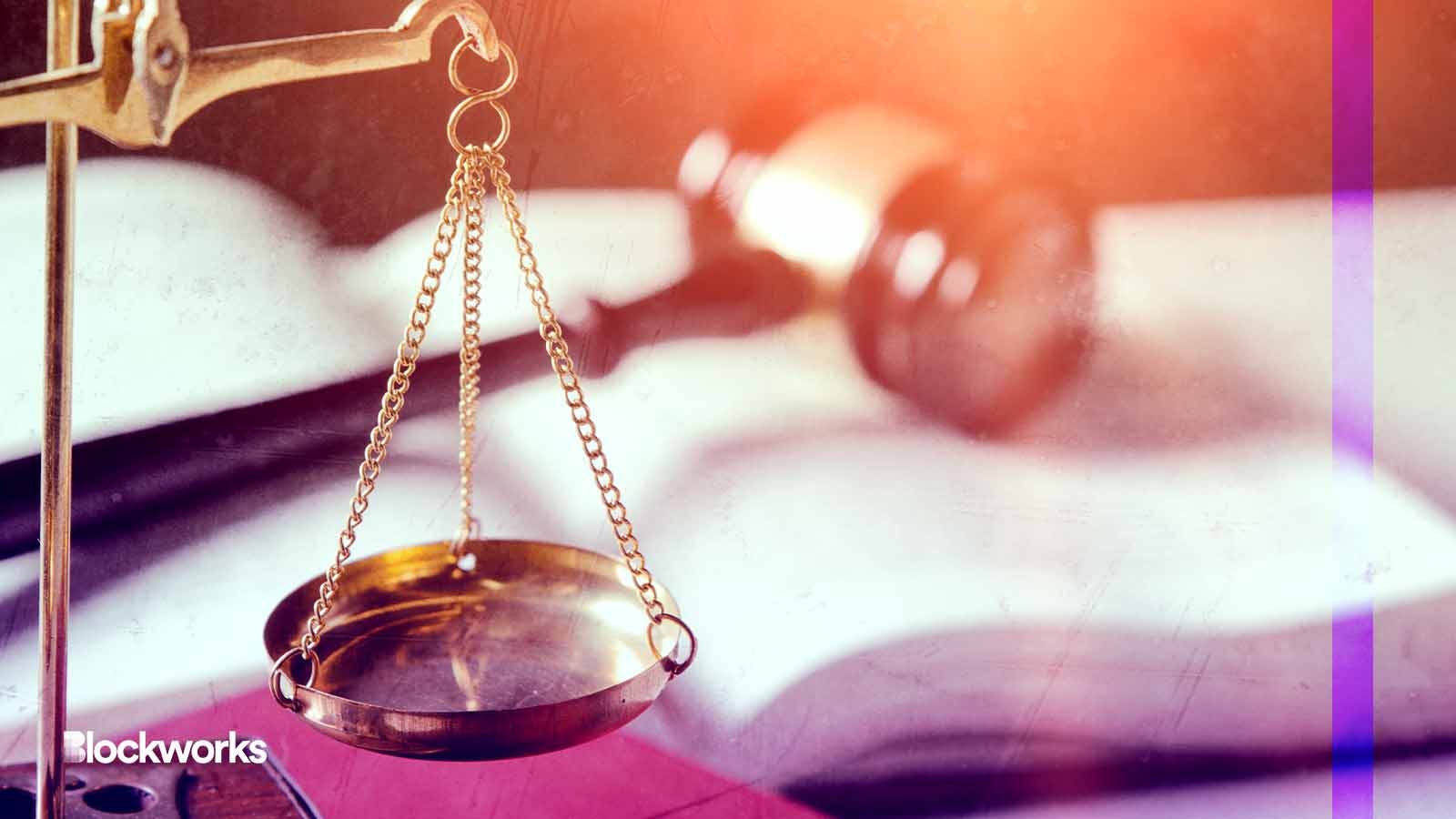Crypto advocates still disagree with Tornado Cash sanctions, but some say criminals must be charged
Two founders are charged with money laundering a week after a judge opted to back up sanctions against Tornado Cash

Proxima Studio/Shutterstock modified by Blockworks
Just over a year after the US Treasury Department added the Ethereum transaction mixer Tornado Cash to its sanctions list, federal prosecutors unsealed an indictment against founders Roman Storm and Roman Semenov. Alexey Pertsev, the service’s third founder, was not named in the indictment.
While the industry has almost unanimously backed the mixing service over the past year, crypto advocates appear mixed on how to interpret these new charges.
“Anyone that willfully evades sanctions or contributes to illicit activity should be prosecuted under the full extent of the law,” Cody Carbone, vice president of policy at the Chamber of Digital Commerce said. “I don’t agree with sanctioning software and have disagreed with OFAC sanctioning tornado cash generally, but if those arrested were knowingly money laundering or aiding North Korea in any way then they should be prosecuted.”
Crypto advocacy group Coin Center has a different stance, arguing that the indictment goes against the Financial Crimes Enforcement Network’s (FinCEN) own guidance.
“The factual allegations of unlicensed money transmission are in conflict with FinCEN’s long standing guidance that an ‘anonymizing software provider is not a money transmitter,’” Peter Van Valkenburgh, director of research at Coin Center said.
FinCEN’s 2019 crypto guidance states that when it comes to anonymizing software, money transmitters are parties that use the software as a business accepting payments. Storm and Semenov didn’t do this though, Coin Center argues in a statement released Wednesday.
“While it is true that by performing these “delivery, communication, or network access services,” the defendants made it easier for individual users to access and use the Tornado Cash smart contracts in order to transmit money, that doesn’t somehow mean that they became transmitters merely because they provided tools that others used to transmit their own money,” the statement read.
The allegations and charges revealed Wednesday come after a federal judge last week backed the government by siding with the Treasury Department in a civil suit brought by Tornado Cash users. Crypto exchange Coinbase funded the legal efforts.
Six Tornado Cash users sued the Treasury, Secretary Janet Yellen, the Office of Foreign Asset Control (OFAC) and its head Andrea Gack a month after the sanctions were handed down. Several crypto advocates and lobbying groups, including the Blockchain Association, opted to back the plaintiffs by submitting amicus briefs to the court.
“To avoid broadcasting their finances to the world, many digital asset holders have turned to privacy-protecting tools like Tornado Cash,” the Blockchain Association wrote in the amicus brief. “Such tools allow users to reclaim privacy that would be available as a matter of course in other contexts, while retaining the benefits that come with using blockchain technology.”
The Blockchain Association maintains that protecting open-source technology is paramount and the recent indictment could set the industry back.
“The action taken yesterday by the Department of Justice against the Tornado Cash developers is a step backwards for American innovation,” Marisa Coppel, senior counsel at the Blockchain Association, said. “While we support the national security efforts of DOJ and OFAC, this action will create a chilling effect around innovative open-source technology in the United States, contributing to the effect of OFAC’s August 2022 sanctions on Tornado Cash smart contracts.”
Authorities on Wednesday also announced that Semenov has been added to the OFAC specially designated nationals list. Storm, who prosecutors said was arrested in Washington Wednesday, was not sanctioned under OFAC. Semenov’s whereabouts are currently unknown, prosecutors said.
Pertsev is currently facing money laundering charges related to his involvement with Tornado Cash in the Netherlands.
Coinbase declined to comment on the indictment.
Start your day with top crypto insights from David Canellis and Katherine Ross. Subscribe to the Empire newsletter.





